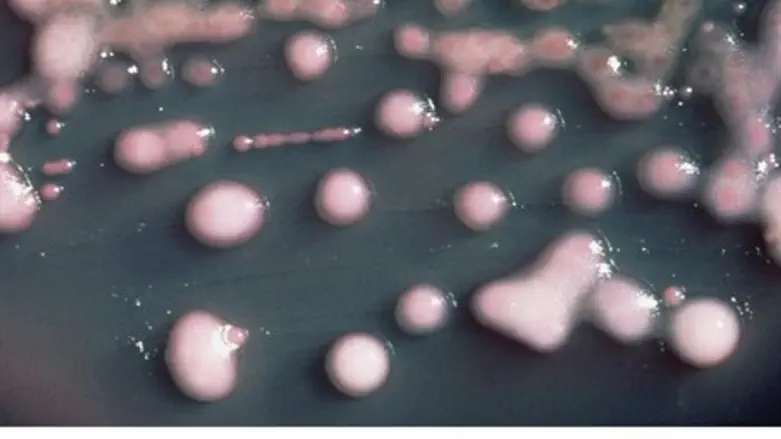
Tel Aviv University researchers have developed a liquid solution to help fight antibiotic-resistant bacteria and keep patients safe in hospitals.
The substance, based on specially designed bacteriophages – viruses that infect bacteria – is able to alter the genetic makeup of antibiotic-resistant bacteria.Developed by Dr. Udi Qimron of the Department of Clinical Microbiology and Immunology at TAU's Sackler Faculty of Medicine, it is an efficient and cost-effective liquid solution to keeping patients safe from life-threatening infections in hospitals, the researcher says.
According to the World Health Organization, antibiotic-resistant bacteria are one of the top three threats to human health. Patients in hospitals are especially at risk, with almost 100,000 deaths due to infection every year in the U.S. alone."We have genetically engineered the bacteriophages so that once they infect the bacteria, they transfer a dominant gene that confers renewed sensitivity to certain antibiotics," Qimron explains.
The solution, described in a recent issue of the journal Applied and Environmental Microbiology, can be added to common antibacterial cleansers used on hospital surfaces, turning resistant bacteria into sensitive bacteria.Added to cleansers, Tellurite represents the second step in a two-part process. A Tellurite compound, which is toxic to bacteria, would also be spread on all surfaces to wipe out the bacteria that had not already been targeted in the process, and thus the entire population of the surface bacteria would be sensitized.
The combination is designed to first disarm, and then kill dangerous bacteria.The solution will be tested in pre-clinical animal trials to ensure its safety before being made available for wider use at hospitals. Once its safety is guaranteed, the solution will come in a bottle, says Dr. Qimron, and easily added to a bucket or spray.
It's easy to prepare, easy to apply, and non-toxic, Dr. Qimron notes. He estimates that one liter of the growth medium — the liquid in which the bacteriophages are grown — will cost just a few dollars. The research was done in collaboration with Ph.D. student Nir Friedman, lab technician Shahar Mor, and Dr. Rotem Edgar of the Ichilov Medical Center.